On the afternoon of September 24, Jiapeng Liu, Director of the Picture Book Editorial Office of Changjiang Children's Press Ltd., and Content Operation Officer of Changjiang Picture Book Research Institute, and Ying Chen, Deputy Director of the Picture Book Editorial Office of Changjiang Children's Press Ltd., gave an interesting lecture to students majoring in Publishing in our school. The lecture was presided over by Jie Xu, Director of the Department of Publishing Science. Yongchun Yao, Associate Professor at the SIM, Wuhan University, made on-site comments.
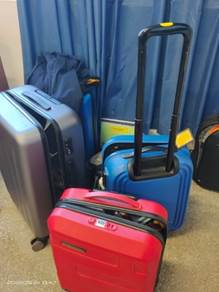
Before the lecture, the four suitcases placed in front of the classroom attracted the students' attention frequently. Unexpectedly, the suitcase was filled with children's picture books. Ying Chen put some picture books on the desks in the first row of the classroom, and the students looked at the books on the desks curiously. In the course of the lecture, along with Jiapeng Liu's display, Ying Chen collected the already displayed picture books into the suitcase, while constantly taking out new picture books. Students were attracted by the picture book displayed by Jiapeng Liu and were also very curious about the picture book taken out by Ying Chen. The attention of the students in the whole lecture was highly concentrated, for fear of missing something wonderful.
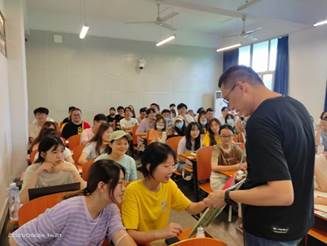
I Can't Imagine All These Books! 100 Children's Books Bring You a Brain Revolution, with this title, Jiapeng Liu showed various kinds of children's picture books which are rich in ingenuity and have great educational significance to the teachers and students present, so that everyone could break the mindset and open their horizon.
-- Can you only read books with your eyes?
The answer isNo.
Jiapeng Liu showed the teachers and students the picture books that can be heard, smelled, assembled and even can be torn.
--Can books only be read passively from front to back?
The answer is stillNo.
Jiapeng Liu took out books that can be read from front to back and from back to front, books that need to be read up and down, books that need to change the reading direction constantly during the reading process, and books that develop plots according to readers' choices.
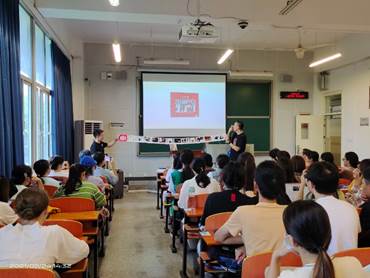
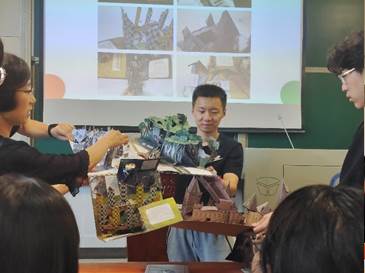
The materials of children's picture books are not single either. In Jiapeng Liu's display, we saw penguin ice books that can show pictures only at a relatively cold temperature, bath books that can show colors only when they meet water, and game books that can't be torn ... Besides, there are many strange books that don't take the conventional way, such asThere was a Fish in the North Oceanis especially narrow,Shocking Books: Animals are So Bigis especially big, andHamburg Bookthat looks like food. During the lecture, Jiapeng Liu guided the teachers and students to see that the children's picture books are unconventional, innovative and creative. Meanwhile, the rigor and painstaking efforts of children's picture book workers could also be experienced.
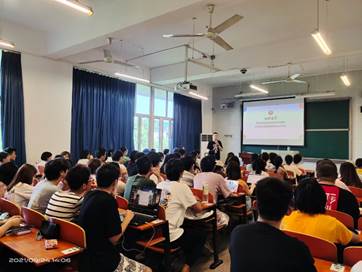
As one of the Revolution of Teaching and Learning series lectures given by experts outside Wuhan University, Jiapeng Liu constructed a world of imagination about children's picture books with 100 kinds of children's picture books for the students, which enabled the students to have a new understanding of the form of publications. This lecture told the students who have just stepped into the publishing major what they can do and what they are expected to do in the field of children's picture books. For those students who have had publishing learning experience for some time, this lecture gave them some interesting and real materials that couldn’t be found in textbooks and theories.
University-enterprise cooperation, and university-industry cooperation help study and research to take root in reality, and cultivate students practically needed by industry and society.